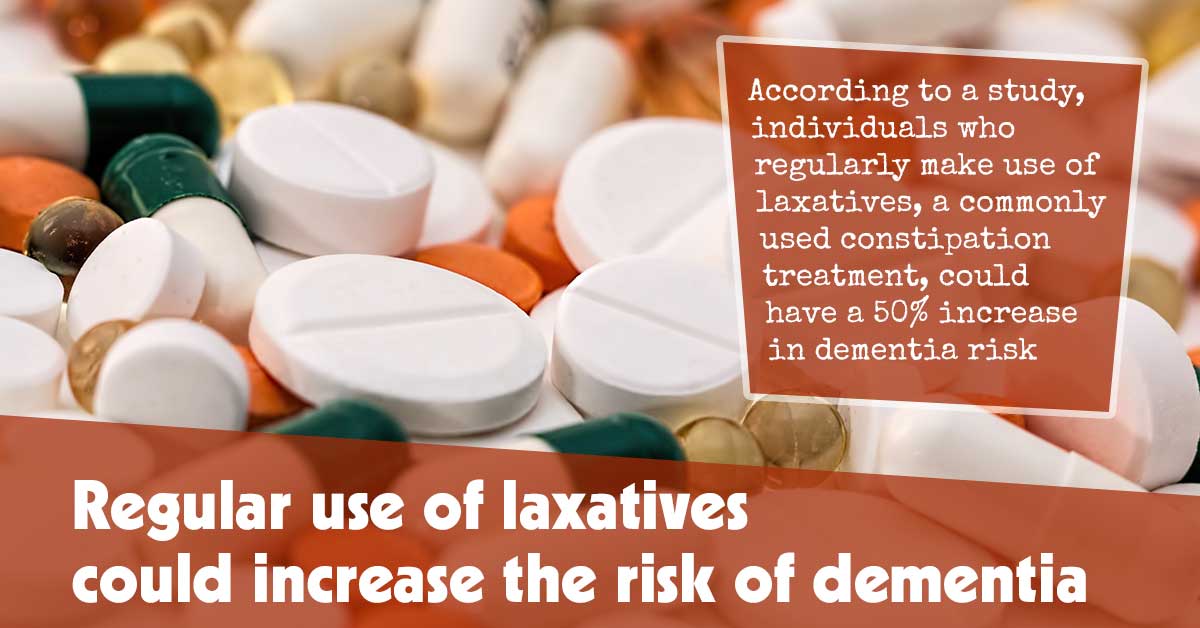According to a study, individuals who regularly make use of laxatives, a commonly used constipation treatment, could have a 50% increase in dementia risk compared to individuals who don’t make use of laxatives.1✅ JOURNAL REFERENCE DOI: 10.1212/WNL.0000000000207081
It was also discovered that individuals who made use of just osmotic laxatives, a kind of laxative that softens the stool by attracting water to the colon, had an even higher risk. Other kinds of laxatives are stimulating, stool-softening, and bulk-forming. The study doesn’t provide proof that laxatives result in dementia. It merely indicates a connection.
Laxative use for constipation is common in middle-aged and older individuals. Regular laxative use could however change the gut microbiome, possibly influencing the gut-to-brain nerve signaling or increasing intestinal toxin production that could impact the brain.
The research discovered that regular over-the-counter laxative use was linked to a greater risk of dementia, especially in individuals who made use of various types of laxatives or osmotic laxatives. Although some individuals make use of stimulant and osmotic laxatives regularly, they aren’t advised for regular use.
The study consisted of 502,229 individuals from the UK biobank database aged 57 on average who didn’t have dementia when the study started. Of these individuals, 18,235 of them reported taking OTC laxatives regularly. Regular use was classified as making use of a laxative most days throughout the month prior to the study.
Over a period of 10 years on average, 218 individuals who regularly made use of laxatives developed dementia. Of those individuals who didn’t make use of laxatives regularly, 1,969 individuals developed dementia.
After adjusting for factors that included education, sex, age, a family history of dementia, and other illnesses and medication use, researchers discovered that individuals who made use of laxatives regularly had a 51% increased risk of overall dementia in comparison to individuals who didn’t make use of laxatives regularly.
Dementia risk also increased with the number of types of laxatives used. There was a 28% increase in risk for individuals making use of 1 laxative type in comparison to a 90% increase in risk for individuals using 2 or more laxative types.
In individuals taking only 1 type, only individuals using osmotic laxatives had an increased risk, with a 64% increase in comparison to individuals who didn’t take laxatives.
Finding methods to reduce an individual’s dementia risk by identifying modifiable risk factors is important. More research is necessary to look into the connection this study found between dementia and laxatives.
A study limitation was that laxative dosage information wasn’t available so the connection between different dosages of laxatives and dementia could not be explored.



